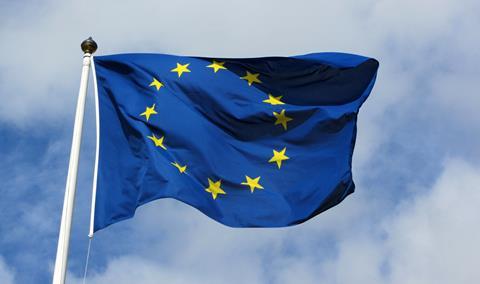Proposals include an end to “unjustified geo-blocking” and a modernisation of copyright law.

The European Commission today revealed plans for a “digital single market” - a unified and borderless regulatory framework for the internet across Europe.
A total of 16 initiatives for the Digital Single Market (DSM) strategy were unveiled in Brussels this morning by Commissioner Andrus Ansip, vp of the DSM, and Günther Oettinger, Commissioner for Digital Economy and Society.
Of particular interest to the audiovisual industry were the references made to this sector in the proposals ¨to end unjustified geo-blocking¨ and the introduction of ¨a modern, more European copyright law”.
¨One of the aims of the copyright modernisation is to facilitate the licensing of rights for online distribution of audiovisual content,¨ the Commission declared.
¨Being able to legally access content online cross-border will help deal with geo-blocking concerns, while respecting the value of rights in the audiovisual sector. The financing of the audiovisual sector widely relies on a system based on territorial exclusivity, which as such cannot be considered as unjustified geo-blocking.¨
The Commission stressed that it did not want tochange the principle of territoriality ¨and understands it is important for the creative sector, especially for the film industry”.
“Each film has its distribution strategy, its release windows system,” it added. “The Commission aims to facilitate the licensing of rights and ensure a better access in the digital world.
“This means, for example, that if a film is available on a video-on demand service in an EU country, Europeans outside the country can also pay to see it.
“This is not about opening access to all content for free. It is about a win-win situation for creators and users; this is about nurturing cultural diversity in the digital age.
¨Legislative proposals will follow before the end of 2015 to reduce the differences between national copyright regimes and allow for wider online access to works across the EU, including through further harmonisation measures.”
Remove obstacles
On taking up office last autumn, European Commission (EC) President Jean-Claude Juncker had made it one of its priority to remove obstacles to his goal of a Digital Single Market (DSM).
The end of March then saw the College of Commissioners then having their first debate on the EC’s DSM Strategy and setting out three pillars for the preparations of the policy unveiled today:
- better access for consumers and business to digital goods, including the tackling of geo-blocking and modernising copyright law;
- shaping the environment for digital networks and services to flourish;
- creating a European Digital Economy and Society with long-term growth potential.
Mixed signals
Commissioner Ansip had been accused of giving out mixed signals ahead of today’s announcement, particularly as far as geo-blocking and territoriality were concerned.
Speaking to Screen Daily after last week’s ¨exchange of views¨ with Ansip during an extraordinary meeting of the European Parliament’s Committee on Culture and Education in Strasbourg, German MEP Helga Trüpel observed: ¨ I have the feeling that there was a double message: on one hand, he wants to abolish geo-blocking - although the Commission has now made some limitations by saying that it doesn’t want to jeopardise the European film industry -, but then he declares that he still holds true to the principle of territoriality.¨
¨What I still don’t hear from him is how a sustainable financing of European films through various territories and exclusive rights to specific platforms would be preserved in the future. He never answers this question, but concentrates instead on the point when the films are already made.¨
Debate on TTIP continues
While the EC’s plans for copyright reform and its Digital Single Market have been at the centre of attention in recent weeks, the debate on the EU-US free-trade agreement, the so-called TTIP, continues to rage.
Trüpel, who drafted the Committee on Culture and Education’s opinion on TTIP, explained that this committee was calling for European audiovisual media services be excluded from the TTIP negotiations and that one of the ¨basic prerequisites¨ for such an agreement would be that the European film industry can continue to be subsidised in the same form as is currently practised.
Meanwhile, the debates on the EC’s copyright reform plans and the TTIP negotiations were brought together in a letter sent by distributor Manuela Stehr, president of the German film industry’s ¨umbrella ¨ organisation SPIO, to Federal Minister of Economy and Energy Sigmar Gabriel.
In her letter, she pointed out that the EC’s Digital Agenda sees than national allocation of licenses (i.e. territoriality) as ¨ one of the major trade barriers on the way to the realisation of a European digital single market.¨
¨Representatives of the EU Commission won’t suddenly argue differently with the negotiating partners of the USA than they are doing with us in Brussels. It is unfortunately also the case that the single market interests of the EU Commission are the same as the interests of the globally operative, predominantly American Internet concerns: For these concerns, a pan-European license would be a great economic advantage..In return that would completely question the system of European film production and distribution.¨
























1 Readers' comment